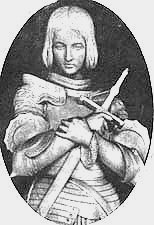The Princess and the Paradigm
An exchange yesterday in chez chic, as we listened to trumpet-heavy classical music:
Me: "I love this triumphant music. Makes me think of ornate royalty, the Sun King, his processional into the throne room. And I, of course, will play the King."
Jim: "Oh? Why the King? Why not a Queen? Wouldn't you like to say, 'Let them eat cake'?"
Me: "Marie Antoinette? Well, you know how she ended up."
Jim: "Well she would have ended up that way anyway."
Me: "Yeah? What do you mean?"
Jim: "Dead."
Today is July 1, birthday of Diana, Princess of Wales, who died in a car crash in 1997. Today I wake up early, and out of my benadryl stupor I sense vague unsettlement -- and I'm pinning it on her.
My question -- related to her, her death, and my unsettlement: how much room to move is any woman given? How far dare we stray off the what's-expected-of-us path before certain punishment ensues?
This iconic woman represented a paradigm ... (here, let me get the definition for you:
EXAMPLE, PATTERN; an outstandingly clear or typical example or archetype [archetype: in the psychology of C. G. Jung, an inherited idea derived from the experience of the race and present in the unconscious of the individual])
... and it is as paradigm that she disturbs me.
Now wikipedia helps me out: "From the time of her engagement to the Prince of Wales in 1981 until her death in a car accident in 1997, Diana was arguably the most famous woman in the world, the pre-eminent female celebrity of her generation: a fashion icon, an ideal of feminine beauty, admired and emulated for her high-profile involvement in AIDS issues and the international campaign against landmines. During her lifetime, she was often referred to as the most photographed person in the world. To her admirers, Diana, Princess of Wales was a role model — after her death, there were even calls for her to be nominated for sainthood — while her detractors saw her life as a cautionary tale."
Icon, ideal, role model, saint ... cautionary tale.
Why cautionary tale? Because although a princess (archaic definition: a woman having sovereign power), being a woman seems always to trump sovereign power.
And in Diana's case, although she initially toed the line -- virgin princess elect and royal breeder -- when she figured out the game wasn't working for her and tried to mold her world to suit her, punishment was relatively swift and irrevocably severe.
Would it have been any different for a man? Could a man step outside his accepted role and live to tell the tale? Well, Prince Charles remains.
Is it because he is a royal, or because he is a man? You tell me. And I'm betting the vote splits 52/48, the approximate ratio of women to men in the world.
Today's fragrance in her honor: Hermes 24, Faubourg: Bergamot, Orange, Peach, Hyacinth, Tiare flower, Orange flower, Jasmine, Orris, Sandal, Patchouli, Amber, Vanilla. Most of the time my chemistry cuts through sweetness; I'm hopeful this will dry down to a pastel amber.


2 Comments:
Actually, I didn't admire Diana. I had nothing against her, but her true claim to fame was her beauty. That is an accident of nature, not a talent to be admired.
But to your question: Of course women are always the cautionary tale. Starting with Eve, we are the cautionary tale. Bummer.
10:08 AM
Hermes 24 Faubourg is the biggest floral-bomb fume I have. The sample dram will last me the rest of my life, I'm sure. It stays pretty big, blossomy and bright on me and doesn't die out in a musty cold amber like some fragrances do. I think it's named 24 because it lasts in all it's glory and strength at least a full 24 hours.
Cheers to the remains of Diana; her sons.
May they gain wisdom.
~clearing
1:18 PM
Post a Comment
<< Home